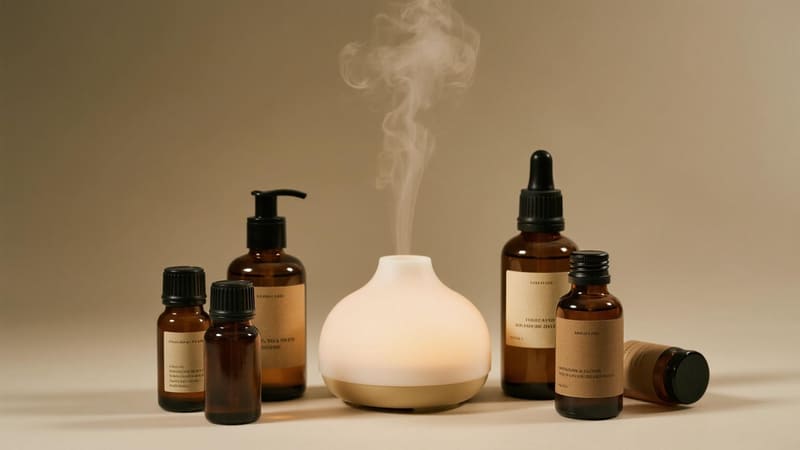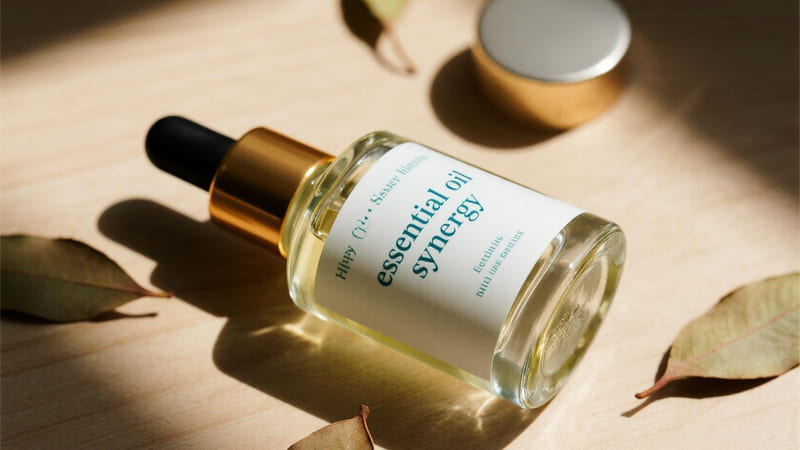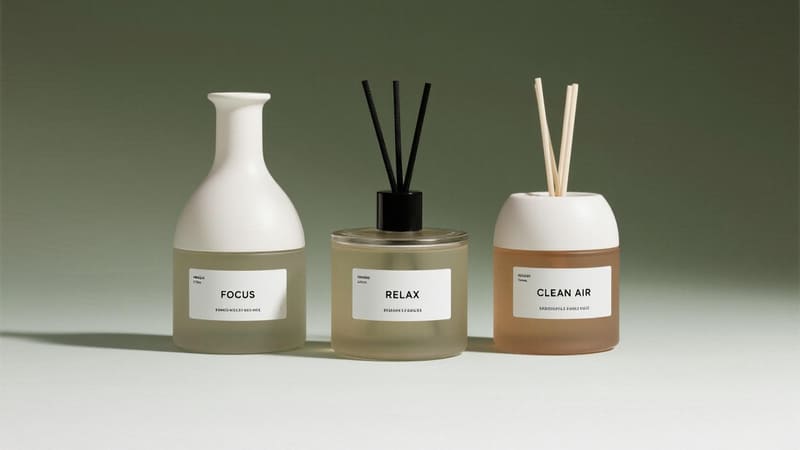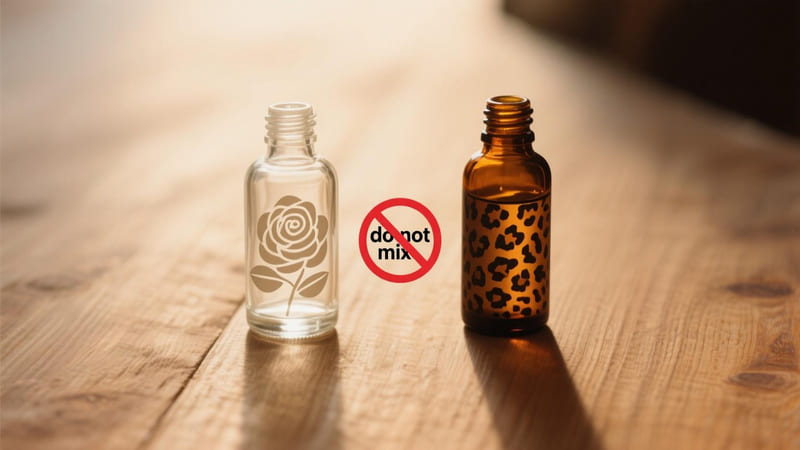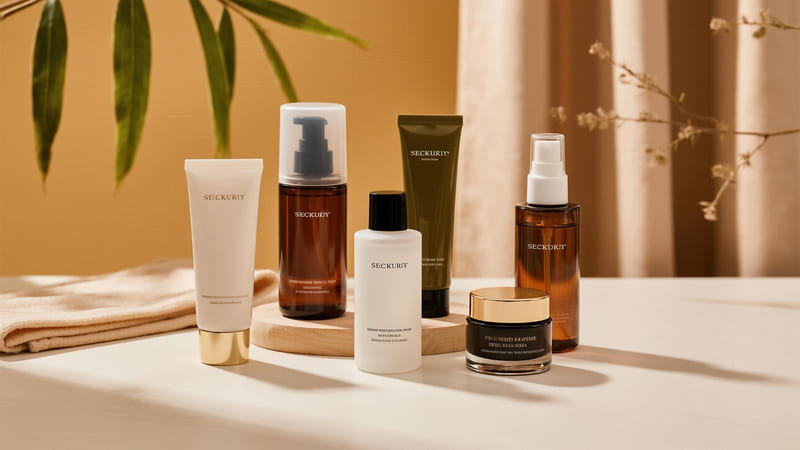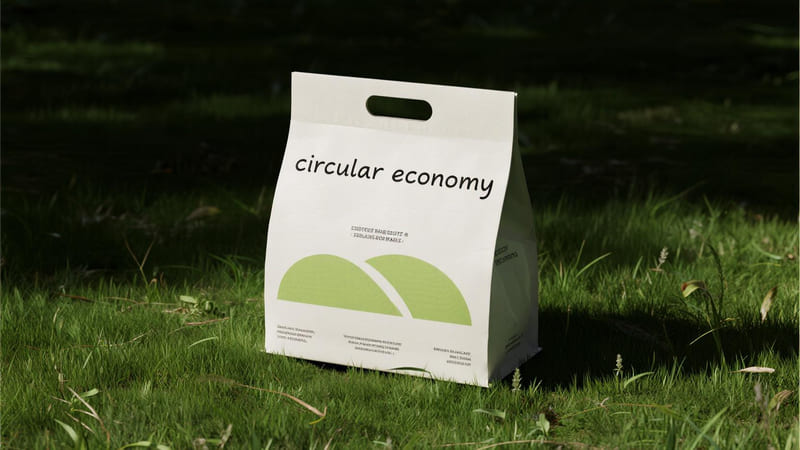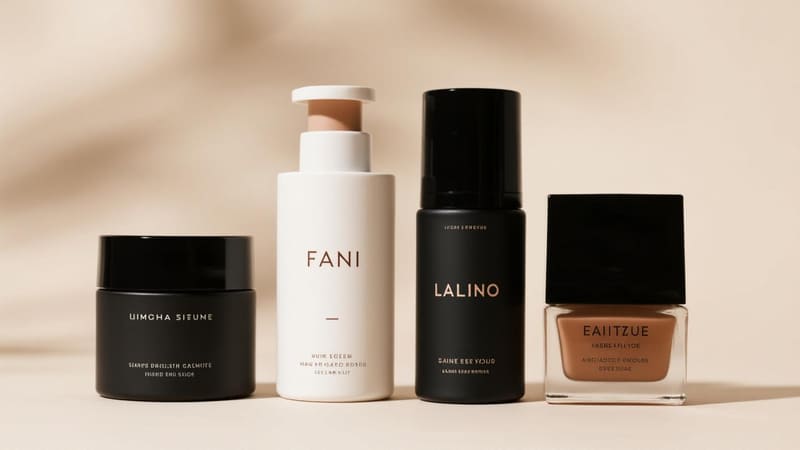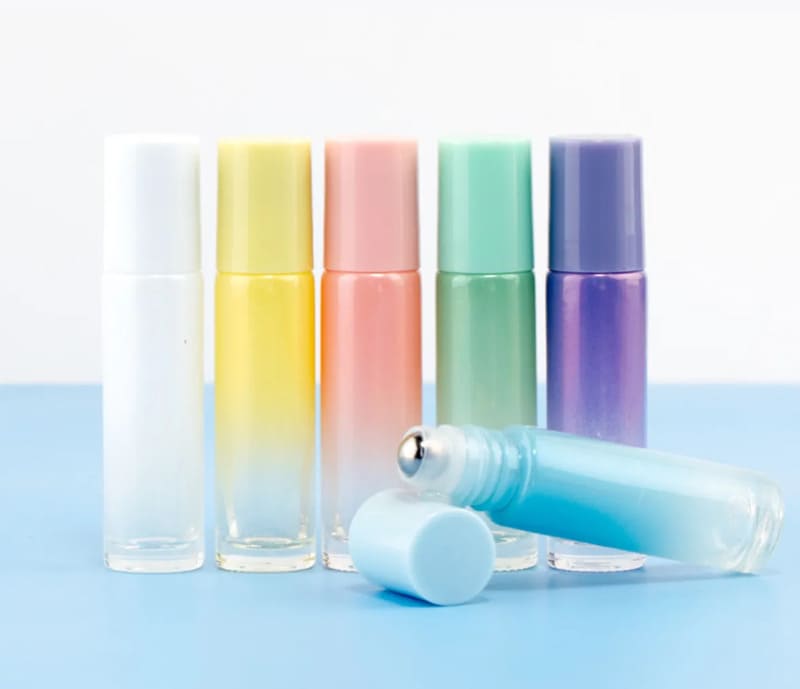Want to create the perfect aroma but unsure how many oils to mix? Combining them incorrectly can create a muddy scent or waste expensive oils. I’ll show you the simple rules.
For best results, stick to a blend of 3 to 5 different essential oils at once. This allows the scents to harmonize without becoming overwhelming. Use a total of 3 to 10 drops for the entire blend, depending on your diffuser and room size.
You now have a clear number to work with, but just picking any 3 to 5 oils won’t guarantee a great result. The art of blending is about more than just numbers; it’s about creating a symphony of scents that work together. To do this well, you need to understand why blending can be better and how to do it right.
Is it better to diffuse one oil or a blend?
Diffusing a single oil is easy, but are you missing out on enhanced benefits? Blending oils can create a more powerful and pleasant experience, but it seems complicated. Let’s simplify it.
Blending essential oils is often better because it creates synergy, where the combined effect is greater than the individual parts. A well-made blend offers a more complex aroma and can target multiple therapeutic needs at once, like promoting both calm and focus.
The concept of synergy is powerful. Think of it like a musical chord. A single note is nice, but three notes played together create a much richer, more emotional sound. The same is true for essential oils. While diffusing a single oil like peppermint is great for a specific goal like staying alert, a blend can create a whole mood. My client Anna, who runs a cosmetics brand, understands this well. For her "relaxing" product line, she doesn’t just use lavender. She blends it with chamomile and bergamot. This creates a unique signature scent for her brand and the combined oils work together to be more calming than any single oil would be on its own. This synergy is what elevates a simple scent into a true experience.
| Feature | Single Oil | Blended Oils |
|---|---|---|
| Aroma Profile | Simple, one-dimensional | Complex, layered, and nuanced |
| Therapeutic Effect | Targeted to one need | Synergistic, addresses multiple needs |
| Customization | Limited to that oil | Highly customizable for any mood or goal |
| Experience | Straightforward | Creates a unique atmosphere or signature scent |
How do I create a balanced essential oil blend?
Excited to blend oils but your creations smell "off"? Just mixing your favorites doesn’t always work. There’s a simple structure professionals use for beautiful, balanced aromas.
To create a balanced blend, use the "note" system from perfumery: top, middle, and base notes. A good blend typically includes oils from all three categories. This ensures the scent is well-rounded and evolves pleasantly over time as it diffuses.
This is a secret from the world of perfumery that makes all the difference. Top notes are the first thing you smell; they are light and evaporate quickly. Middle notes are the "heart" of the blend, and they emerge as the top notes fade. Base notes are the deep, rich aromas that anchor the scent and make it last. When I work with clients like Mohammed to create a fragrance for a custom product, we always build it using this structure. It ensures the scent is appealing from the first moment and remains pleasant as it lingers. A simple recipe to start with is using 3 drops of a top note, 5 drops of a middle note, and 2 drops of a base note. This creates a balanced 10-drop blend.
| Scent Note | Characteristics | Examples |
|---|---|---|
| Top Note | Light, fresh, uplifting. Evaporates first. | Lemon, Peppermint, Eucalyptus, Bergamot |
| Middle Note | The "heart" of the blend. Well-rounded body. | Lavender, Rosemary, Chamomile, Tea Tree |
| Base Note | Deep, rich, grounding. Lasts the longest. | Cedarwood, Frankincense, Vetiver, Sandalwood |
What are some popular essential oil blend recipes for a diffuser?
Want to try blending but don’t know where to start? Staring at your oil collection can be overwhelming. Here are some simple, proven recipes you can try right now.
For focus, try 2 drops of peppermint and 2 drops of lemon. For relaxation, blend 3 drops of lavender and 2 drops of chamomile. For a fresh, clean scent, mix 2 drops of eucalyptus, 2 drops of tea tree, and 1 drop of lemon.
Having a few go-to recipes makes it easy to enjoy the benefits of blending without the guesswork. These are the kinds of blends my clients might use to create a specific atmosphere in their spas, stores, or even in the products themselves. The goal is to create a consistent mood that customers associate with their brand. You can use these same recipes to set the mood in your own home. Remember to start with a smaller number of total drops if you have a small room or are sensitive to smells, and you can add more if needed. Here are a few more of my favorite combinations that are both effective and smell wonderful.
| Blend Name | Recipe (Drops) | Effect |
|---|---|---|
| Morning Focus | 2 Lemon + 2 Peppermint + 1 Rosemary | Energizing, promotes alertness and clarity. |
| Sleepy Time | 3 Lavender + 2 Cedarwood | Deeply calming, grounding, and promotes rest. |
| Fresh Home | 2 Eucalyptus + 2 Lemon + 1 Tea Tree | Purifies the air with a clean, crisp scent. |
| Stress Relief | 3 Bergamot + 2 Frankincense | Uplifting and peaceful, helps ease tension. |
Are there any essential oils I should never mix?
Worried about creating a bad or even unsafe oil combination? While most oils blend well, some combinations should be avoided. Let’s cover the simple rules for safe blending.
It’s less about oils that should never be mixed and more about avoiding blends with conflicting effects. For example, don’t mix a stimulating oil like peppermint with a sedating oil like chamomile if you want a clear outcome. Also, always consider safety for pets and children.
Safety and effectiveness are the two main goals of blending. You want a scent that works and is safe for everyone in the room. The first rule is to avoid mixing oils with opposite purposes. You wouldn’t drink coffee and a sleeping tea at the same time; the same logic applies here. The second, and more important, rule is to consider who is breathing the air. Some oils that are perfectly safe for adults can be harmful to children or pets. For example, strong oils like eucalyptus or peppermint should not be diffused around infants. And oils like tea tree can be toxic to cats. As a packaging supplier, we always advise our clients to include clear warning labels on their products. This is a crucial part of responsible product creation.
| Blending Consideration | Why It’s Important | Example to Avoid |
|---|---|---|
| Conflicting Effects | The blend will be ineffective and confusing to the body. | Mixing stimulating peppermint with calming chamomile. |
| Overpowering Aromas | The scent can become muddy, unpleasant, or cause headaches. | Blending multiple strong florals like ylang-ylang and jasmine. |
| Pet Safety | Some oils are toxic to animals, especially cats. | Diffusing tea tree, wintergreen, or citrus oils around cats. |
| Child Safety | Children’s systems are more sensitive. | Using strong oils like eucalyptus or peppermint around infants. |
Conclusion
Stick to 3-5 oils per blend. Use the note system for balance, and always prioritize safety. Now you can confidently create beautiful and effective aromas for any mood or purpose.

